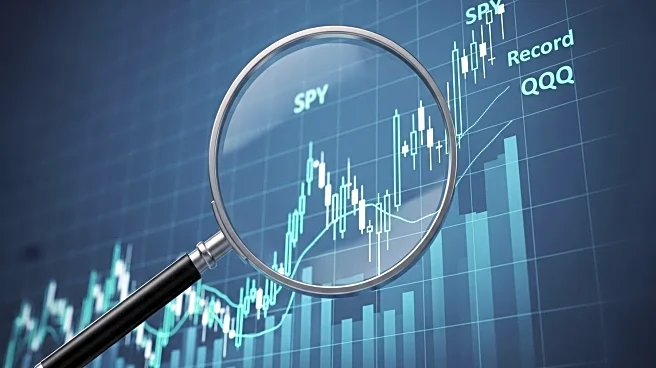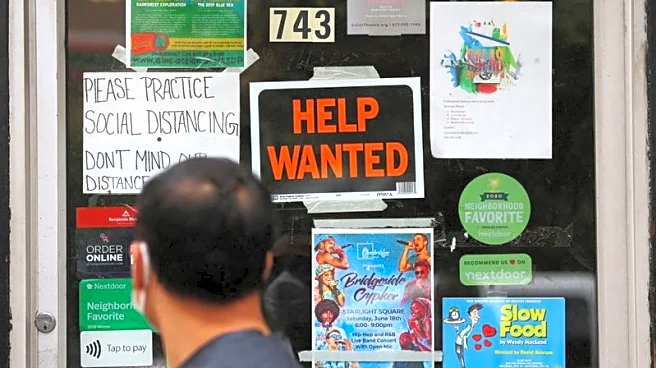What's Happening?
The S&P 500 ETF (SPY) and Nasdaq 100 ETF (QQQ) have reached new record highs despite the ongoing government shutdown, which has extended to its eighth day. The shutdown matches the average duration of previous federal closures, with the longest lasting 35 days in 2018. Both Democrats and Republicans attempted to pass a funding extension bill, but the Senate rejected the proposals. The stock market received a boost from Wells Fargo's revised GDP growth estimates, which anticipate stronger consumer spending. Additionally, Goldman Sachs' chief global equity strategist highlighted differences between the current market environment and previous bubbles.
Why It's Important?
The record highs of SPY and QQQ indicate investor confidence despite political uncertainty from the government shutdown. The shutdown's impact on federal operations and potential economic consequences are significant, yet the market remains resilient. Wells Fargo's optimistic GDP growth forecasts suggest robust consumer spending, which could drive economic growth. However, warnings from Wall Street voices about a potential stock market bubble highlight the need for cautious investment strategies. The situation underscores the complex interplay between political events and market dynamics, affecting investor sentiment and economic forecasts.
What's Next?
The government shutdown's resolution remains uncertain, with political leaders struggling to reach a consensus on funding. The Federal Open Market Committee (FOMC) is expected to implement rate cuts by the end of 2025, which could influence market conditions. Investors should monitor developments in the shutdown and FOMC decisions, as these factors will impact economic stability and market performance. The potential for further stock gains exists if economic indicators remain positive, but caution is advised due to the risk of market volatility.
Beyond the Headlines
The extended government shutdown raises concerns about the long-term impact on federal operations and public services. Political divisions and the inability to pass funding bills reflect broader challenges in governance. The situation highlights the importance of effective political leadership and negotiation to prevent disruptions in government functions. Additionally, the stock market's resilience amid political uncertainty suggests a strong underlying economic foundation, but investors must remain vigilant to potential risks.












